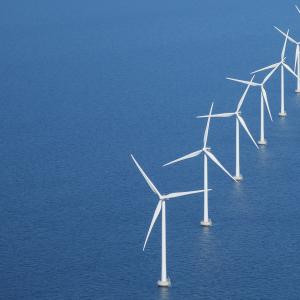Vietnam Energy Outlook Report shows the way: Towards 2050 Vietnam can yearly save up to 10 times Denmark's annual emissions from energy consumption
The Vietnam Energy Outlook Report 2019 was presented in Hanoi today. Produced in collaboration between the Danish Energy Agency and the Vietnamese energy authority Electricity and Renewable Energy Authority, it demonstrates how Vietnam can accelerate the country's green transition and achieve emissions savings that exceed decades of Danish emission reductions.
Today Mr. Morten Bæk, Permanent Secretary of the Danish Ministry of Climate, Energy and Utilities, presented the Vietnam Energy Outlook Report 2019 in Hanoi together with the Danish Ambassador to Vietnam, Kim Højlund Christensen, and the Vietnamese Vice Minister of Industry and Trade, Hoang Quoc Vuong. The Ministry of Industry and Trade (MOIT) is the main partner in the Danish-Vietnamese government-to-government cooperation on green energy transition.
The message of the Vietnam Energy Outlook Report 2019 is clear; there is great potential for green transitioning in Vietnam, which by 2050 can save up to 370 million tons of carbon dioxide emissions annually compared to the country's existing climate plans. This corresponds to more than 10 times as much as Denmark's annual emissions from energy consumption. The report was prepared in close cooperation between the Danish Energy Agency and the Vietnamese energy authority, Electricity and Renewable Energy Authority.
Potential for a greener and cheaper energy system
To reduce the global level of greenhouse gasses, it is essential that emerging economies like Vietnam invest in green solutions rather than black technology. Vietnam is the 14th most populous country in the world, and Vietnam today emits about five times as much carbon dioxide as Denmark. Vietnam's energy consumption is expected to triple by 2050. To meet this development, the Vietnamese need to make massive investments in the energy sector. Investments, that will influence the country's climate imprint for decades.
Therefore, today's presentation of the Vietnam Energy Outlook Report 2019 at Hotel Melía in Hanoi received a lot of attention. The report clearly demonstrates that green solutions can make Vietnam's energy sector more cost-effective and sustainable. In other words, Vietnam can accelerate the country's green transition without compromising economic growth. At the same time, it provides Vietnam with better opportunities to live up to its commitments under the Paris Agreement and to comply with the UN's global sustainable developments goals. Analysis from all five scenarios illustrate, that Vietnam does have the potential to meet its unconditional climate target of 8% reduction in 2030.
Continuous government-to-government cooperation since 2013
In 2013, Denmark and Vietnam initiated an energy partnership with the purpose to support Vietnam's efforts to live up to the Paris Agreement and the UN sustainable development goals. Modelling the country's energy system and analyzing development scenarios for the future is an important focus area of the partnership. This results in a bi-annual Vietnam Energy Outlook Report by the Vietnamese Energy Authority and the Energy Agency, where various aspects of the transformation of Vietnam's energy sector are analyzed in depth. The first Vietnam Energy Outlook was published in 2017 and it is expected that another publication will be published in 2021.
EOR19 is available in English here.
Facts:
- The Danish-Vietnamese Energy Partnership is financed by the Ministry of Foreign Affairs through the Climate Envelope and implemented by the Danish Energy Agency.
- The collaboration was established in 2013. Today it has an emphasis on supporting Vietnam in the fulfillment of the Paris Agreement and the UN's global energy and climate goals.
- As part of the cooperation, Vietnam's energy authority EREA and the DEA are implementing a long-term energy planning effort.
- Denmark has 15 government collaborations on energy with countries that collectively emit more than 60 percent of the world's carbon dioxide emissions.
- By building knowledge and capacity in partner countries' national authorities, policy makers are empowered to make sustainable and cost-effective energy policy decisions that support the global green transition.
Contact information:
- Søren Storgaard Sørensen, ssts@ens.dk, +45 33 92 67 65

